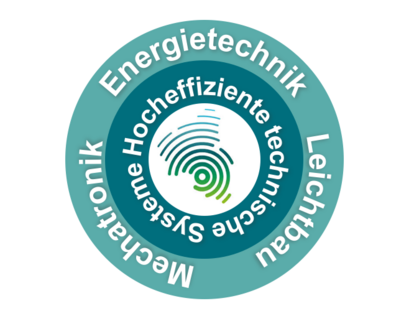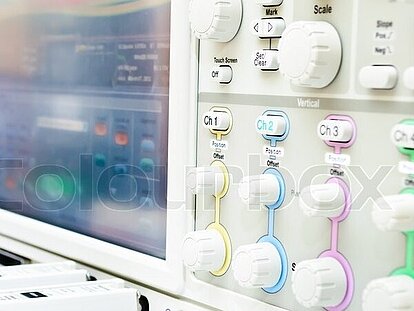Research Area: Mechatronics
Mechatronics has become a highly attractive area of engineering worldwide. The interdisciplinary linking of mechanical, electronic and information technology modules to mechatronic systems characterizes modern mechanical engineering,
the automotive industry and the electrical engineering industry in particular. Mechatronic systems ensure competitive advantage through enhanced functionality, better efficiency and lower costs in innovative products as well as in advanced production processes. Mechatronics is thus a core element in the research focus and requires an interaction of experts in different fields. It integrates the focal points of work in order to optimally exploit the solution space available for system optimization.
The procedure for the development of mechatronic systems is clearly illustrated by the 3-level process model according to Bender, which was refined from the classic V-model and from the VDHE directive 2206 with regard to mechatronic systems.
Mechatronics is not only a simple combination of already existing fields and technologies, but requires the systematic linking of different disciplines innovative tools, processes and methods - there is a need for research on cross-methodology, techniques and tools to actually lift the synergistic potentials. This complex interaction of different domains in mechatronics requires additional effort for validation ("testing") and the verification of mechatronic systems. On the one hand model-based approaches are suitable for shortening the verification and validation (V & V) (design and verification support), on the other hand a high degree of test automation is necessary already in the early development stage (validation support). Test methods such as software-in-the-loop (SiL), processor-in-the-loop (PiL), model-in-the-loop (MiL) or hardware-in-the-loop (HiL) are indispensable. There are also Endurance tests to test the lifetime of the system or individual components, which are best abbreviated by methods of artificial aging. For several years, the manufacturing industry has been undergoing sustainable change through the use of mechatronic solutions. Due to the close integration of different domains increase the product and process quality enormously. At the same time as the time and cost pressure grows, the industry must face the new requirements nationally and internationally. This opens up a high R & D potential in the field of mechatronics as a core element of efficient technical systems, especially in the environment of small and medium-sized enterprises. The main focus of the research focus "efficient technical systems" could lie in the following areas:
- Consulting on how to design mechatronic systems
- Consistent model-based procedures for design, verification and validation
- (Application) development of mechatronic systems (system design, actuators, sensors, mechanics, information technology)
- Development of tools, processes and methods
- Test specification and test case development
- Test Automation
- Test Development (SiL, PiL, MiL, HiL)
- Test and verification in the laboratory or field
Due to the interacting system components of mechatronic products, a close networking between the colleagues in the research focus of R & D projects is indispensable. The possibility of acquainting approaches, methods and processes from other domains in this way is, in addition to the increase in third-party funding, an important competence, which is intensified by the research focus.
Contact HTS "Mechatronics"

Studiengangsleitung "Elektrotechnik und Informationstechnik, Master", Fachbereichsrat AING, Forschungsschwerpunkt Hocheffiziente technische Systeme, Institut Energieeffiziente Systeme (IES), Prüfungsausschuss AING Master
- +49 631 3724-2240sven.urschel(at)hs-kl(dot)de
- Campus Kaiserslautern
- Room F2.029







